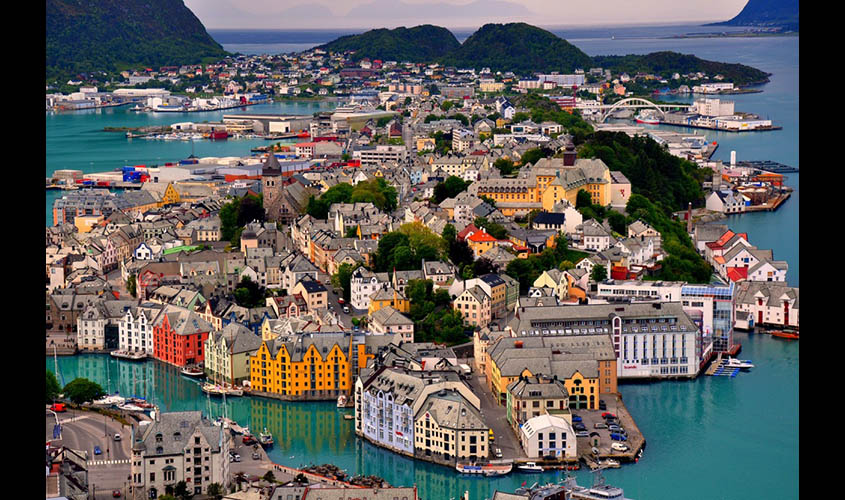Norway is the Chile of the northern hemisphere with over 25,000kms of dramatic coast; this archipelago of fjords and mountains covered with coniferous forests provide Norway with some if its main commodities, hydropower, minerals, paper products and seafood.
This reporter has been discovering Oslo, mostly by boat; it seems nearly everyone has a boat of some sort, activities on the water, sport (running and cross-country skiing) and foraging for wild produce (mushrooms and blueberries in late summer) in the forest are part and parcel of the culture.
Norway offers an egalitarian way of life where income and wealth are evenly distributed, high quality education and skill training are available to everyone, this satisfies its citizens and attracts immigration. The strong state sector, the role of civil society in democracy and the social safety net make it a destination for refugees and migrants. Norwegian society is an example of integration and adherence to the principles of human rights. Oslo is a cosmopolitan capital, since the 1960s Pakistanis have been migrating to Norway and now there are nearly 40,000 people in Norway of Pakistani descent. Recently refugees and migrants have come from Eritrea, Syria, Somalia and Afghanistan. Norway has copious quantities of oil and gas and the petroleum sector provides circa 9% of jobs; anticipating an eventual decline in oil and gas production, pragmatically Norway saves state revenue from petroleum sector activities into the world’s largest sovereign wealth fund, valued at almost $900 billion as of early 2017. If necessary the government has expressed willingness to increase public spending from the sovereign wealth fund to help prevent a recession.
Norwegians are active citizens and 80% are members of an NGO working towards an improved civil society at home and in Europe. Norway is dedicated to free speech as demonstrated by the Prime Minister’s contretemps with Facebook last year. PM Erna Solberg is a Facebook user, as a statement in the ongoing debate about Facebook’s indiscriminate editing policies Solberg shared the well-known photograph of the naked child fleeing the napalm bombs in Vietnam, by war photographer Nick Ut; just a few hours later the post was removed on grounds of indecency. Solberg was enraged that history was being distorted by algorithms and criticised Facebook in the British press; the result was the vice president of Facebook, Sheryl Sandberg wrote a personal letter thanking the PM for her commitment and promising to change the way the community standards and algorithms worked. An impressive move for a country with 5.25million citizens to take on Facebook with 2billion active users in the interests of accurate reporting of past and present. The Minister of Culture, Linda Hofstad Helleland, then addressed the Association of Norwegian Editors about the risks of censorship related to digitization and the importance of offering a diversity of opinion. Hofstad Helleland has initiated a Committee on media diversity, which is looking into how the media can be healthily financed in the future, a bold and admirable move towards a variety of expressions and freedom of speech.

